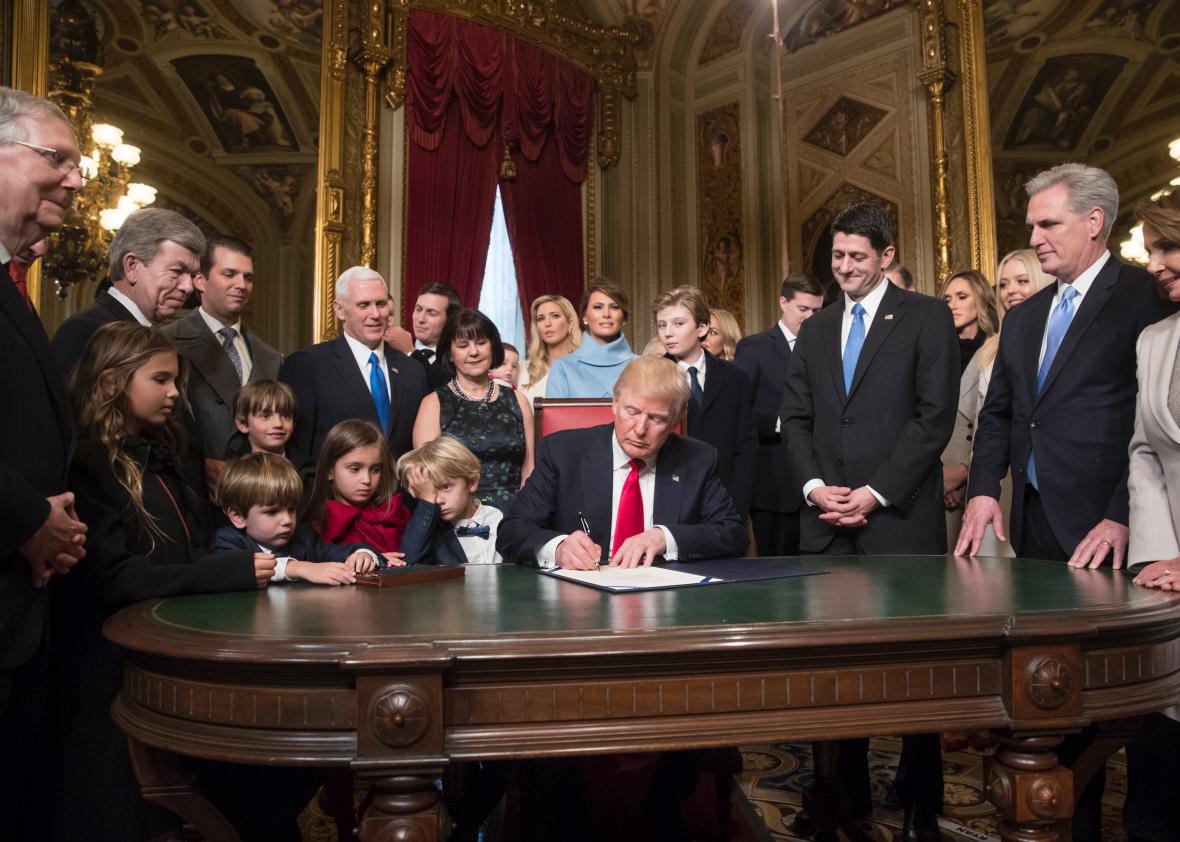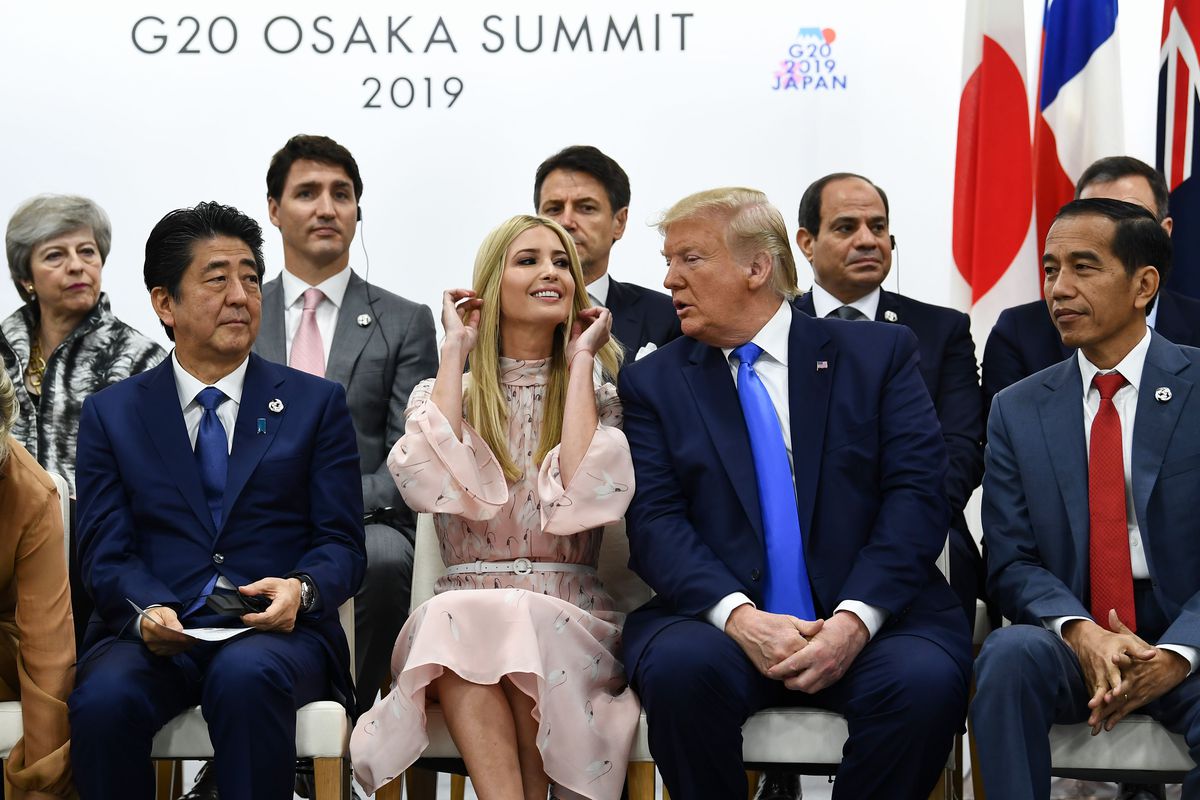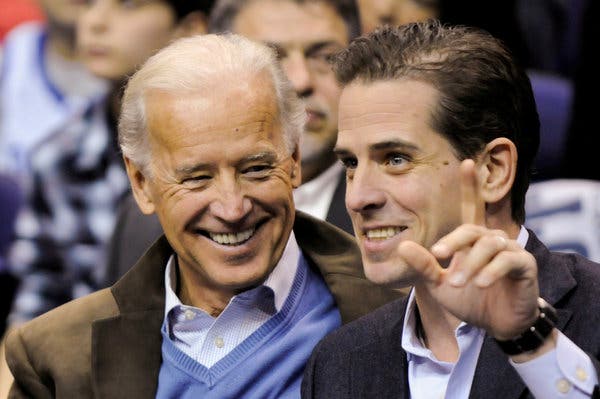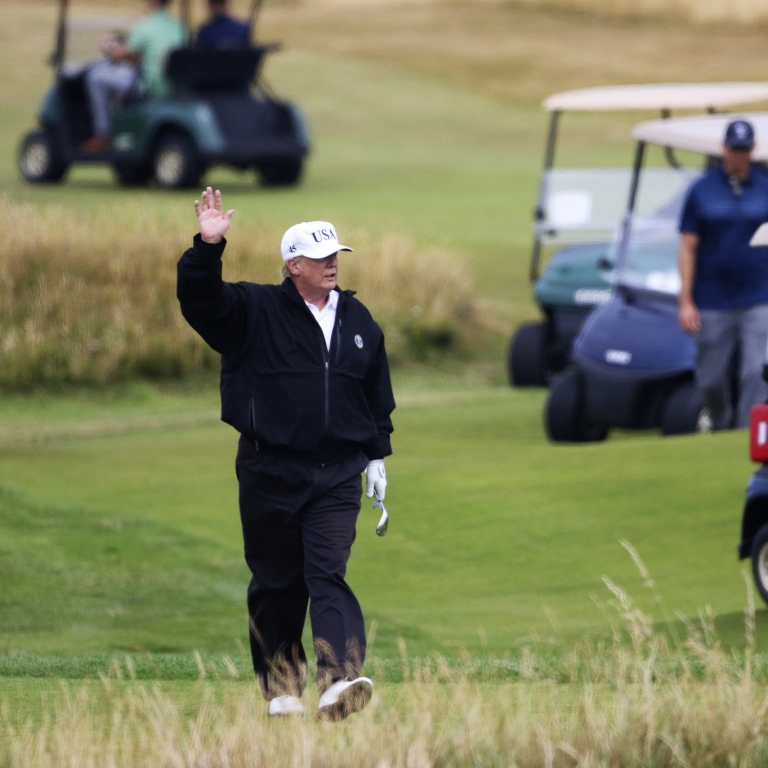Family Benefits: How politicians’ families profit off their connections

A few minutes every morning is all you need.
Stay up to date on the world's Headlines and Human Stories. It's fun, it's factual, it's fluff-free.
To prevent public servants from profiting from being in a position of power, the United States government has multiple statutes that forbid self-dealing and nepotism. But in spite of these laws, government officials and their families often appear to benefit either directly or indirectly from their proximity to power.
In the 2020 election, President Donald Trump and former Vice President Joe Biden will go head to head to present the case for whose leadership will be better for the country. Yet, both have been accused of allowing their families to profit off their time in government, setting up a contest of ethics as much as ideas.
Federal laws restricting private gain
Concerns that government officials would seek to profit from their positions has led to multiple laws meant to quell self-dealing practices that would lead to personal enrichment.
One such statute is 5 CFR § 2635.702, a federal law related to the executive branch of the government, of which the president is the head. This statute addresses the “use of public office for private gain.”
In addition to barring an individual from personal gain, this statute prohibits “the endorsement of any product, service or enterprise, or for the private gain of friends, relatives, or persons with whom the employee is affiliated in a nongovernmental capacity.”
This statute specifically addresses the “inducement or coercion” of another individual, including a subordinate, for gain. A member of the executive branch may not use their position to suggest the government supports them in a private capacity. Nor may they “endorse any product, service or enterprise.”
Shortly after Trump took office, one of his top advisors, Kellyanne Conway, faced ethics complaints based on the § 2635.702 statute after she endorsed products in a fashion line belonging to Trump’s daughter, Ivanka Trump.
The anti-nepotism law
Another law, U.S. Code §?3110, which officially restricts employment of relatives, is commonly known as the anti-nepotism law. It forbids a public official from appointing or hiring “any individual who is a relative” to a position within their own agency.
This law is at the center of complaints that Trump’s White House received early in his presidency. When Trump first took office, he brought on both Ivanka and her husband, Jared Kushner, as advisors in his White House. This led to speculation that Trump was violating the 1967 anti-nepotism law. The Trump administration has successfully skirted that law by arguing that the White House is not a federal agency.

Nonetheless, since serving as one of Trump’s advisors, Kushner has been accused of multiple acts of self-dealing. Perhaps most notoriously, Kushner, who is a real estate tycoon like his father-in-law, is alleged to have urged the government to support a blockade against the nation of Qatar to force the Qatari government into investing in one of his buildings.
The Hobbs Act
Yet one more anti-profiteering law is The Hobbs Act (18 U.S. Code §?1951), passed in 1946. It deems it a crime to obstruct, delay, or affect “commerce or the movement of any article or commodity in commerce.”
Robbery, extortion and threats of physical violence for this purpose are expressly prohibited by the law.
In an October 2019 interview with Minnesota Public Radio (MPR), Ciara Torres-Spillescy, professor of law at Stetson University, explained that Trump may have been in violation of the Hobbs Act when he withheld aid to Ukraine to pressure the government into publicly opening an investigation into Biden.
The Ukraine situation led to Trump’s impeachment by the House of Representatives and eventual acquittal by the Senate.
Biden’s alleged nepotism

While Biden hasn’t been accused of violating nepotism laws while in office, members of his family have faced accusations of abusing Biden’s positions, first when he was a senator and then as the vice president.
In October 2019, The Intercept reported that Biden’s brother, James, as well as the vice president’s son, Hunter, had used their family connections to a prominent politician for personal enrichment. The report accused both James and Hunter of “cashing in on the implication — and sometimes the explicit argument — that giving money to a member of Joe Biden’s family wins the favor of Joe Biden.”
Hunter Biden was at the center of the Ukrainian scandal that led to Trump’s impeachment. Republicans have accused Hunter of using his connection to his father to gain a board seat with Burisma Holdings, a Ukrainian energy company. The position paid US$50,000 a month despite Hunter not having any experience in the energy sector.
Biden was accused of having Ukraine’s top prosecutor, Viktor Shokin, removed from his post, allegedly to protect Hunter and Burisma from a corruption investigation. In fact, the vice president helped ensure a legitimate investigation of Burisma by pushing for the removal of a prosecutor who was refusing to root out corruption in the country.
Nonetheless, according to The Intercept, Hunter’s presence on Burisma’s board was thought to give the company cover. “It is the entire reason Hunter Biden was paid so handsomely to do nothing,” the report claimed.
Systemic profiteering
In another report earlier this year, The Atlantic claimed that Biden’s former challenger for the Democratic nomination, Vermont Senator Bernie Sanders, had also had family members profit off his position in government.
In the 1980s, prior to being elected to Congress, Sanders was the mayor of Burlington, Vermont. During that time, he is said to have paid his wife, Jane Sanders, with taxpayer money by adding her to the city’s payroll and directing campaign funds towards her company.
Since becoming a congressman, a number of Sanders’ family members have also been well paid through campaign positions. It is not illegal for family members to serve on a person’s campaign, so long as their role is shown to be legitimate.
As The Atlantic article points out, throughout US history, family members of prominent politicians – including Presidents Ulysses S. Grant, Franklin D. Roosevelt and Dwight Eisenhower – have benefited through their family’s connections, often through positions in the White House.
The appointment of President John F. Kennedy’s brother, Robert, as the US Attorney General led to Congress passing the aforementioned anti-nepotism law in 1967.
Trump’s alleged profiteering
Trump’s attempts to paint Biden as profiting from his role in government has led many to point out that the president is not above criticism on that front.
Trump has been accused of repeatedly using his presidency to profit personally or to enrich his children. Since Trump became president, the Trump Organization has officially been run by his two sons, Donald Trump Jr. and Eric Trump.
Much of the profits that the family makes comes from rent collected from commercial tenants in Trump-owned properties or from unknown entities purchasing real estate from the company.
Trump and Ivanka have also been busy buying and securing trademarks in China, a major boost to the Trump family’s various overseas business dealings.
President Trump’s golf trips

Since becoming president, Trump and his supporters have regularly touted the fact that Trump donates his entire presidential salary, which is true. Trump donates his annual US$400,000 salary to various departments of the government, including the Department of Agriculture and the Department of Homeland Security.
Over a full four-year term, these donations will amount to US$1.6 million.
But in an example of a campaign promise that Trump has not kept, in February 2016, he told a rally audience he would be too busy to golf. In reality, Trump has golfed regularly, visiting his own clubs and resorts on average once every five days of his presidency. There is nothing illegal about Trump golfing, of course, but ethical concerns are raised by the fact that he golfs at his own resorts.
According to TrumpGolfCount.com, a privately run website that tracks the president’s golf trips, the estimated cost to the US government for these trips has amounted to US$133,000,000 so far. Those numbers have been verified by the US Government Accountability Office.
Trump’s trips to his golf resorts aren’t solely a taxpayer-funded vacation, though. They are also business opportunities where Trump can bring in foreign dignitaries and have them pay his company to meet with him. According to a June 2019 report by the Independent, Trump had already earned at least US$1.6 million in profit from his resorts since becoming president, equal to his full donated salary.
[article_ad]
Have a tip or story? Get in touch with our reporters here!
Sign up for daily news briefs from The Millennial Source here!




Comments ()